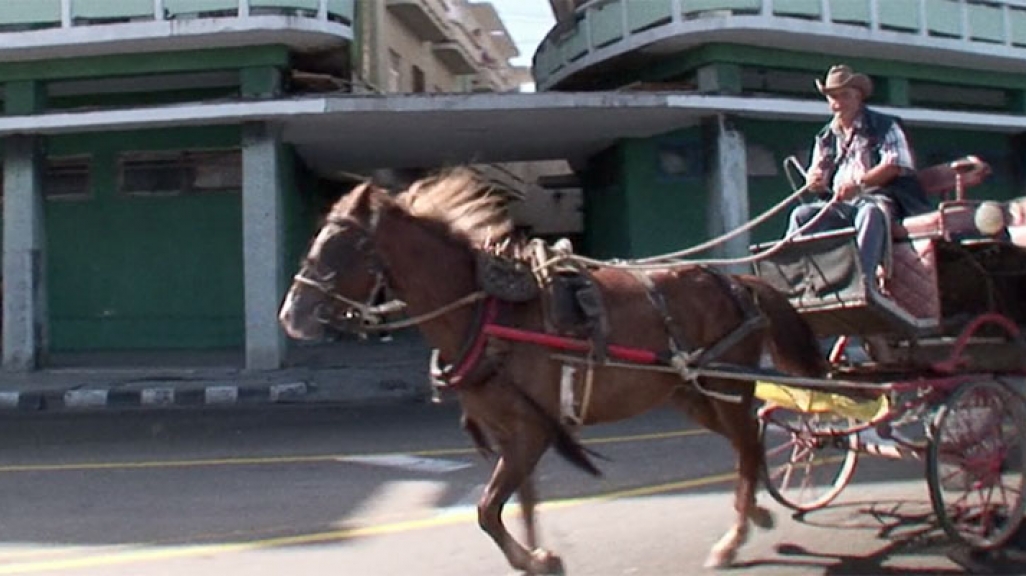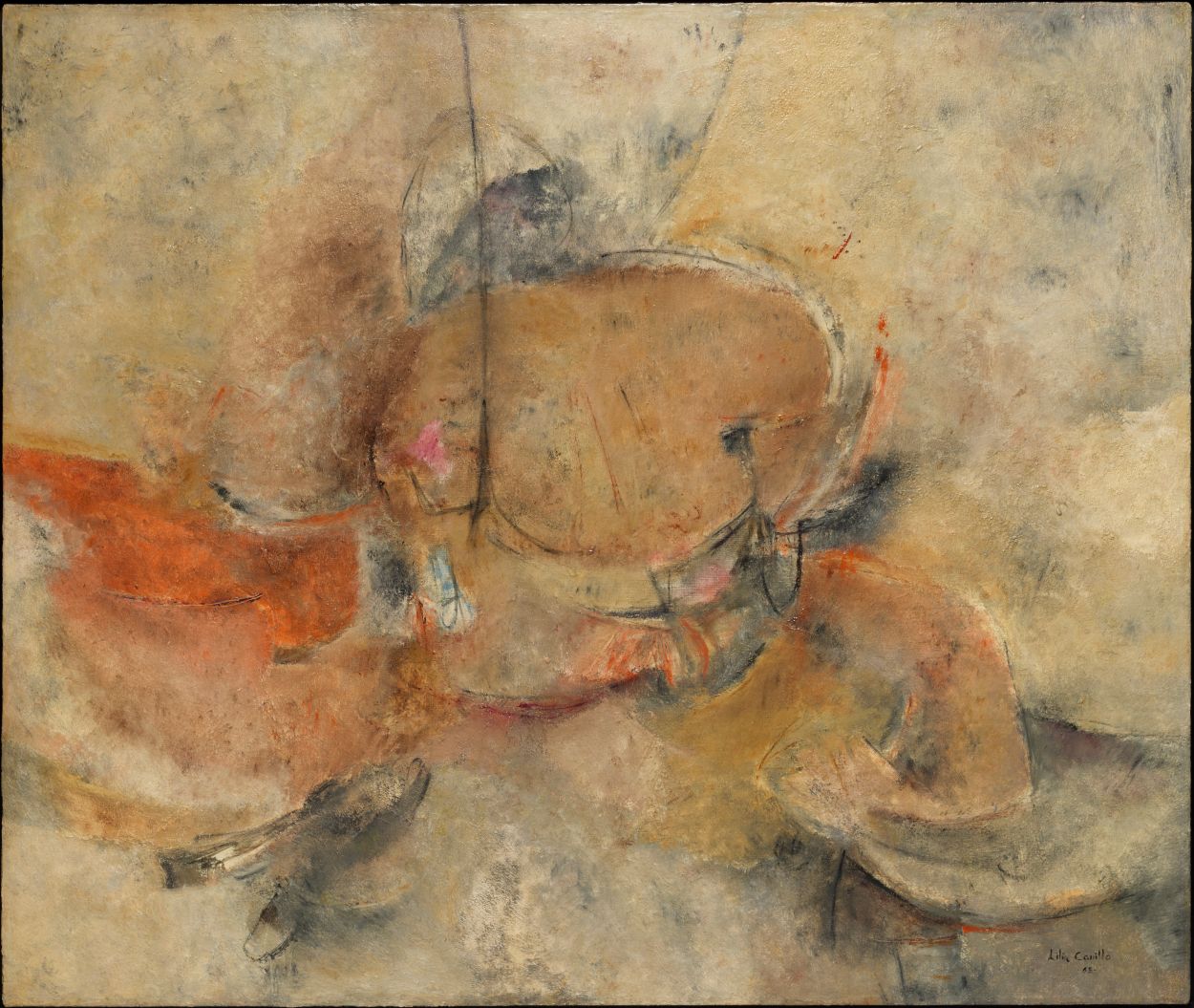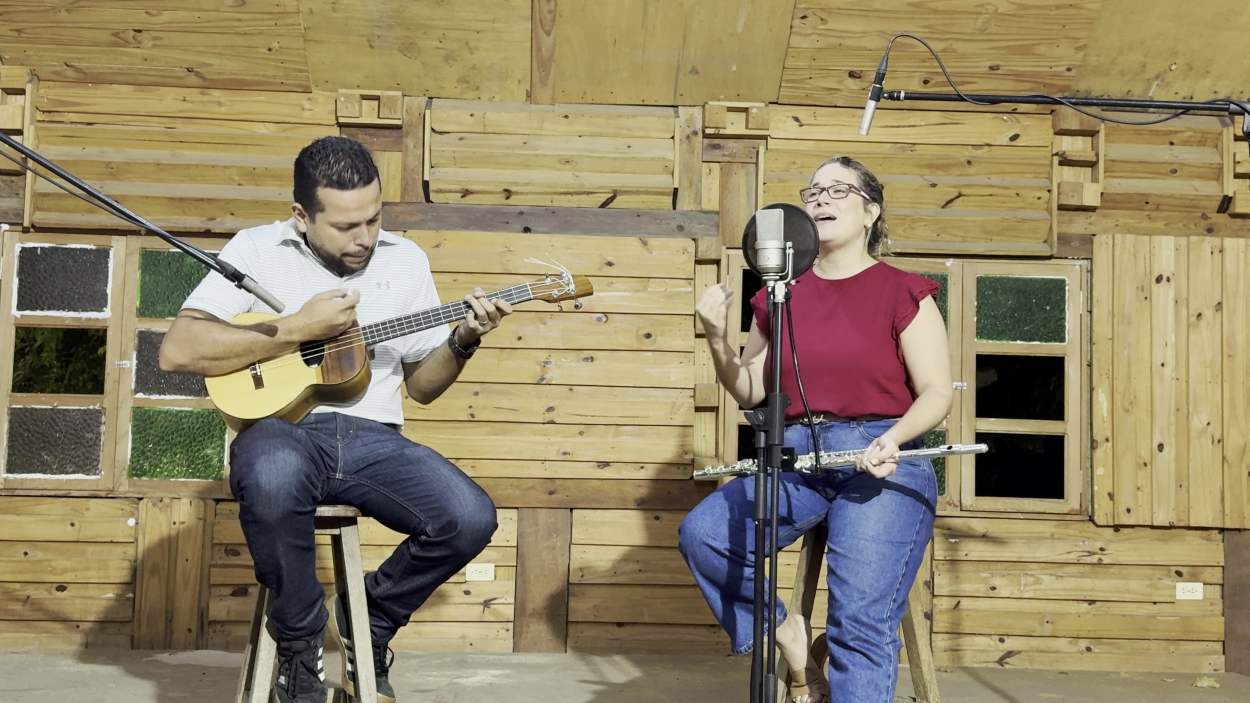A Few of Our Favorite Things in 2018
A Few of Our Favorite Things in 2018
From films to books to GIFs, here’s what Americas Society/Council of the Americas staff enjoyed outside of work.
From films to books to GIFs, here’s what Americas Society/Council of the Americas staff enjoyed outside of work in 2018.
Film and TV
La Casa de las Flores, directed by Manolo Caro.
This delightfully dark comedy, an original Netflix series from Mexico, combines the absurdity we love about Latin American telenovelas with a tongue-in-cheekiness that brings it down to earth. While the series doesn’t take itself too seriously, its thoughtful—and hilarious—conversations on issues like race, class, and LGBTQ rights make it shine.
Cuba and the Cameraman, directed by Jon Alpert.
In this unfiltered documentary, Emmy-winning filmmaker Alpert chronicles the fortunes of three Cuban families over the course of four tumultuous decades in the nation's history.
DreamTown, directed by Betty Bastidas.
Ecuador’s Chota Valley is one of the country’s poorest regions, yet it has one chief export: soccer players. This film chronicles the journey of striker Aníbal Chalá, a young Afro-Ecuadoran, over five years as he pushes for a place on a top squad. The film also tells the story of two other players from Chota Valley who made it, offering a glimpse of what might lie ahead for Aníbal.
Roma, directed by Alfonso Cuarón.
Cuarón’s semi-autobiographical film is set in a tumultuous period of Mexico City’s 1970s history, but it crystallizes societal inequalities that persist today in this tale of a middle-class family, centering around domestic worker Cleo. Yes, it’s now available on Netflix, but the common refrain is that the stunning film should be seen on the big screen. Also: we’re here for Yalitza Aparicio, who broke ground as an indigenous actress with her appearance on the cover of Vogue México.
Zama, directed by Lucrecia Martel.
In this adaptation of Antonio di Benedetto’s 1956 classic of Argentine literature, an eighteenth-century magistrate desperately tries to leave the comically cruel world he helped make. The film shows the birth of Latin America's dream-like expectations and of the colonial political reality.
Podcast episodes
“Ana Mendieta,” No Man’s Land.
The Cuban artist’s work is often overshadowed by her untimely death and cited as an example of patriarchy in the art world. But, in this podcast episode, historian Alexis Coe unearths a more complete story of Mendieta, one of the 14,000 Peter Pan Cuban children covertly airlifted to the United States in the 1960s.
“The Diary of an ‘Undesirable’,” Latino USA.
First he was deported. Then he was recruited. After spending time as a prisoner of war in a German concentration camp, Anthony Acevedo was forbidden from telling his story. Good thing the Mexican-American medic kept a notebook.
“The Fallout,” Chapo: Kingpin on Trial.
While we’re wary of anything that might glamorize narcos, this episode of the Vice series hears from the mothers of the disappeared who search for clandestine graves in hopes of finding their disappeared children, as well as the journalists who risk everything—and too often pay the ultimate price—when covering the drug war. Available in English and Spanish.
“Marketing a Better Mezcal,” The Trip.
Nathan Thornburgh travels the world to talk (and drink) with interesting people. In this episode of the podcast from Roads & Kingdoms, he sits down with Niki Nakazawa, owner of a mezcal brand that promotes artisanal producers in Mexico.
Books
Affections (Los afectos), by Rodrigo Hasbún.
A historical fiction based on the story of Hans Ertl, a German mountaineer and Nazi cinematographer who fled to Bolivia with his family after the war. With his three daughters taking turns as narrator, it’s a story of the mid-century power dynamics between father and daughter, the right and the left, and Bolivia and the world at large. Available in Spanish and translated into English by Sophie Hughes.
The Book of Emma Reyes (Memoria por correspondencia), by Emma Reyes.
Colombian painter and intellectual Reyes’ letters were only discovered in 2012, and they revealed the remarkable, harrowing story of her early years. Before she made it to Europe, Reyes grew up in penury in the slums of Bogotá, only to be moved to an ascetic Catholic convent where the young orphaned girls were responsible for, among other tasks, embroidering the ornate clerical vestments. Available in Spanish and translated into English by Daniel Alarcón.
Mourning (Duelo), by Eduardo Halfon.
Halfon’s narrator traverses the globe in search of elusive secrets. He digs into his roots in Jewish Poland and to the forbidden stories surrounding the long-ago drowning of his Uncle Salomón. As he goes deeper, he realizes the truth lies in his own past, in the brutal Guatemala of the 1970s and his subsequent exile. Available in Spanish and translated into English by Lisa Dillman and Daniel Hahn.
Noli Mi Tángere, by José Rizal
The titular phrase, which means “Touch me not” in Latin, is inscribed on a statue dedicated to martyrs of the Bolivarian revolution who died at the hands of the Spanish crown in Cartagena. But it comes from across the Pacific: from Rizal’s 1887 novel, one of the great Filipino epics from a hero of the Philippines’ revolution. Available digitally and in print.
Music
El Mal Querer, by Rosalía
It’s impossible not to be hypnotized by Spanish singer Rosalía Vila Tobella’s second album, which “seamlessly links flamenco’s characteristic melodrama to the heart-wrenching storytelling of modern, woman-flexing R&B.” The album’s songs, which Vila co-produced with El Guincho, come with arresting, episodic videos to boot.
Contrabandista, by Javier Camarena
This Mexican tenor has become a fixture in the main opera houses around the world. This fall, mentored by Italian mezzo superstar Cecilia Bartoli, he launched his first album, which includes three world premiere recordings by Spanish singer and composer Manuel García, as well as classics by Rossini.
Graphic tales
I Am a Professor in Venezuela, by Yorelis Acosta. Illustrated by Lucas García.
Venezuela’s deterioration is so exponential, it’s hard to grasp at times. In this comic, García poignantly illustrates the day-to-day pains of Acosta, a professor in Caracas, through moments like not having 10 sheets of paper to print out lessons or trying to time the one meal per day close to bedtime so as not to fall asleep hungry. Available in English and Spanish.
Los desterrados del Chaco, El Surtidor. Art directed by Juan Heilborn.
Paraguay’s Gran Chaco, an ecologically rich region the size of Croatia, is experiencing the globe’s fastest rate of deforestation due to exploitative businesses. This Gabo Award-winning series, told in four parts, depicts the wealth of species in the Chaco, the European roast that’s leveling trees, the people working to save the land, and the town that God bought.
GIFs
The dutifulness with which this sign-language interpreter translated El Bronco’s proposal to cut off thieves’ hands during one of Mexico’s presidential debates.

The multi-instrumentalist Natalia Lafourcade unimpressed by losing a Latin Grammy to…Maluma.












